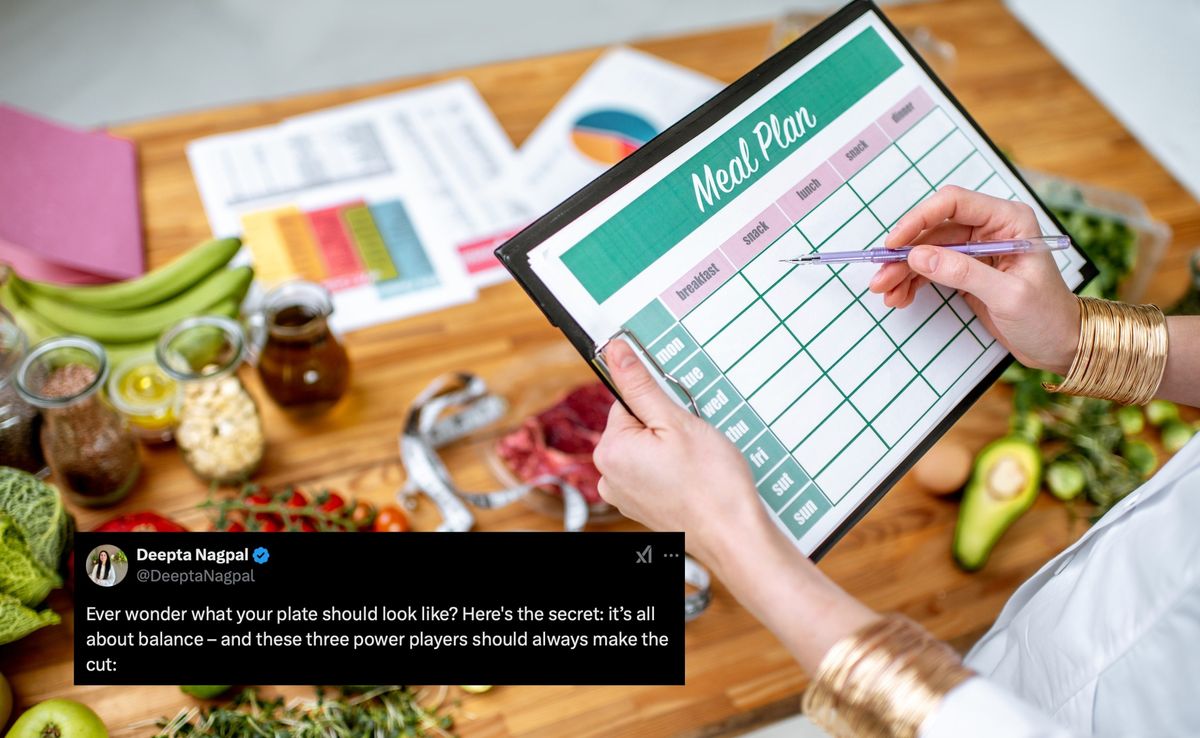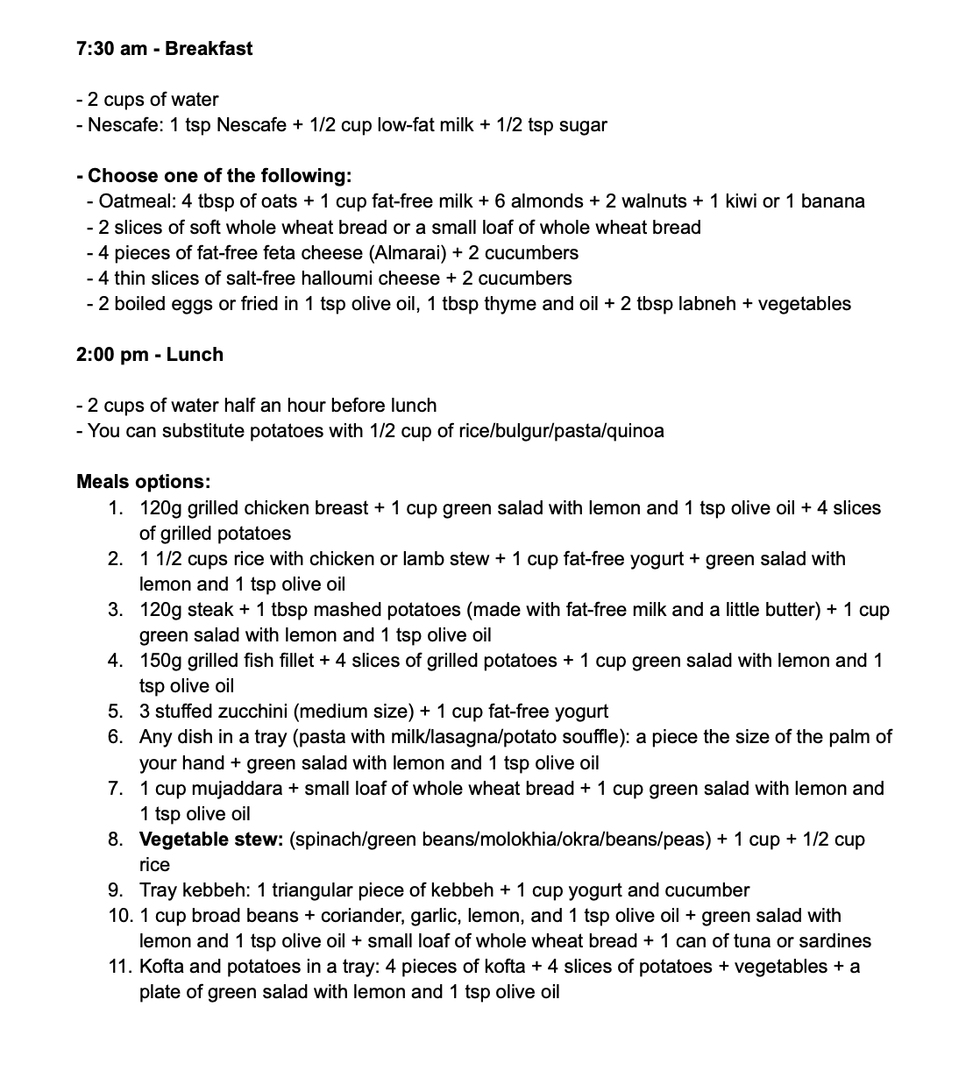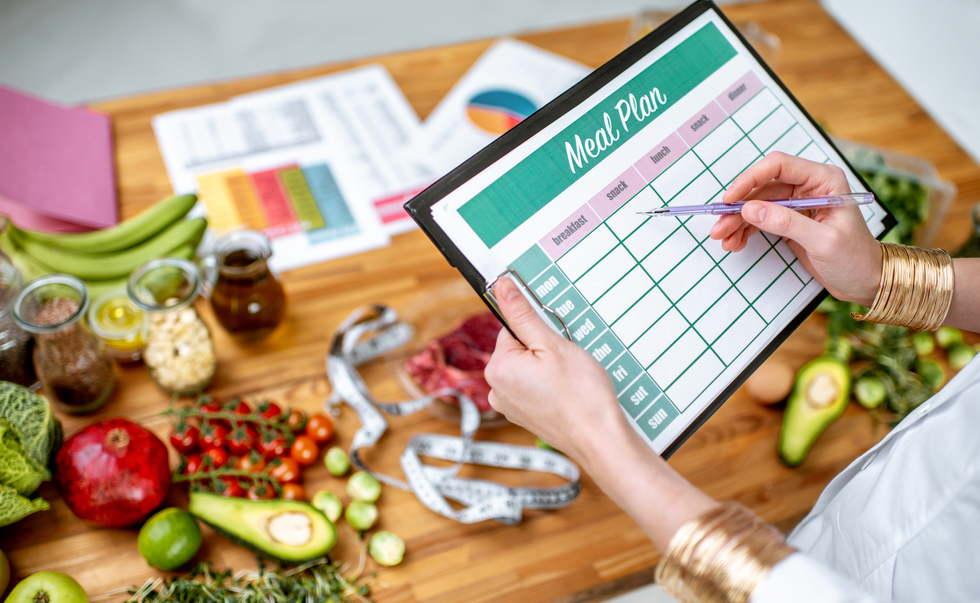
Are nutritionists the new personal trainers in Dubai's wellness boom?
UAEWhat it's really like to sit down with a nutritionist in Dubai. Spoiler alert: we talked about kale, a lot
Jan 09, 2025
Jan 09, 2025
Share
Share this link via
Copy Link
https://nukta.com/are-nutritionists-the-new-personal-trainers-in-dubai-s-wellness-boom
Dubai isn’t just a city; it’s a stage, and the latest performance is all about what’s on your plate. Welcome to 2025, where the personalized nutritionist has become the ultimate backstage pass to optimal living.
How did this happen? And more importantly, what does a visit to a Dubai nutritionist actually entail?
As a card-carrying resident of the UAE, I decided to find out—all in the name of journalism and, let’s be honest, to silence the nagging voice in my head telling me to get my life (and my pantry) together.
The rise of the nutritionist as a status symbol
To understand why nutritionists are having a moment in Dubai, you have to understand the cultural soup they’re swimming in.
First, there’s the food. Dubai is a melting pot of culinary indulgence: shawarma stands, Michelin-starred restaurants, and five-hour brunches are a norm. Eating here isn’t just about sustenance; it’s a lifestyle, a way to say, “Look at me, I’m thriving.”
"Dubai’s fast-paced lifestyle creates additional challenges. The heavy reliance on meal delivery services, frequent dining, brunches or business dinners, and diets high in meat, sugar and processed foods (specifically fast-food) are prevalent trends.
These factors, along with a growing interest in holistic health and personalized wellness, have made nutritionists increasingly sought after," shares Melanie Nomura, a nutritionist and gut health specialist.
Samar E. Bou Antoun, a dietitian and wellness coach agrees: "When I first moved to Dubai, what really surprised me is people here love to eat out. Everyone here orders in or dine out. People don't really have the habit of cooking and there is an over reliance on convenience. They overestimate the quality of these meals. When I tell them you ordered a salad from X restaurant and it contains around 800-1000 calories, they're shocked!"
Now pair that with a city obsessed with wellness. Gyms here double as social hubs. Instagram stories overflow with footage of reformer Pilates, Lagree classes, and yoga on yachts. Wellness isn’t just a choice; it’s practically a prerequisite for existing in Dubai’s influencer-heavy orbit. And the cherry on top? A culture that’s forever chasing the next big thing. Personalized nutritionists—with their promise of bespoke meal plans, cutting-edge science, and just the right amount of bougie—fit the bill perfectly.
In Dubai, I also expect to see a rise in plant-based eating and functional foods as more people become aware of sustainability and the benefits of whole-food diets. Technology, like wearable devices and AI-driven nutrition tools, will also play a big role in helping people stay on track with their health goals.
A quick Google search will show you the breadth of options available. There are your old-school clinical dietitians, perched in hospitals or medical centers, ready to tackle serious health issues. But the hot-ticket nutritionists? They’re in sleek wellness centers in Jumeirah, sporting titles like “Functional Nutritionist” or “Integrative Health Coach.”
Their websites boast jargon-laden promises of metabolic resets, gut health optimization, and DNA-based diet plans. Oh, and their Instagram pages? Immaculate. Think grain bowls shot in perfect golden-hour lighting and captions like, “Fuel your body, feed your soul.”
These nutritionists cater to a certain clientele: the type who’d drop AED 500-1000 on a single consult without blinking and view their health journey as a new form of luxury consumption. Seeing a nutritionist is about more than just getting healthier; it’s about the optics of getting healthier.
True wellness is about how you feel—your energy, your digestion, your resilience. It’s about longevity, not just appearances.
"The wellness industry in Dubai has grown exponentially, and while it’s great to see people investing in their health, there’s a downside when aesthetics become the primary focus. Looking healthy isn’t the same as being healthy. Quick fixes like extreme diets or cosmetic procedures may give short-term results but often ignore the importance of inner health, such as gut health, hormonal balance, and mental well-being," added Nomura.
A tale of two food diaries
To prepare for my foray into the world of personalized nutrition, I had to fill out a pre-consultation questionnaire. It started simple enough: “How many meals do you eat a day?” and “How much water do you drink?” But soon, the questions veered into deeply introspective territory: “How often do you experience bloating?” and “On a scale of 1 to 10, how stressed are you?” Stress about filling out this form? 10 out of 10, obviously.
When we hopped on the Zoom call, my nutritionist—let’s call her Leila—was chic, wearing a tailored blazer and the kind of minimalist jewelry that screams, “I’m successful but down-to-earth.”
Leila kicked things off by reviewing my food diary. I’d spent the week meticulously documenting my meals, leaving out only the 11 PM chocolate raids I’d like to forget. “Okay,” she began, “so I see you’re starting your mornings with coffee and…nothing else?” It was less a question, more an accusation.
From there, we delved into everything: my erratic eating schedule, my love affair with dutch pancakes, and my occasional reliance on instant noodles. Leila took notes furiously, nodding like a therapist piecing together my childhood trauma but with carbs.
A week later, I received my personalized meal plan. It was…a lot. Breakfast was no longer optional, and coffee had to be without sugar and accompanied by protein and healthy fats. There were smoothie recipes featuring maca powder (which I’d never heard of) and more references to quinoa than I’d encountered in my entire life. But it wasn’t all kale and deprivation. Leila had included options for indulgence: a piece of dark chocolate here, a small portion of kunafa there.

Still, the plan came with rules: “80/20” compliance, no skipping meals, and—most alarmingly—“limit dining out to twice a week.” As someone who doesn't cook AT ALL, this felt like a personal attack. That being said, it definitely wasn't as limiting as I thought it was going to be.
Is it worth it?
By the end of my first month, I had to admit: I felt good. My energy levels were up, my skin was glowing, and I hadn’t touched instant noodles in weeks. But beyond the physical benefits, there was something oddly satisfying about having a nutritionist. It felt like an upgrade. Like having a personal assistant for your digestive system.
And that, perhaps, is the crux of why nutritionists have become the new personal trainers in Dubai. A nutritionist signals that you’re serious about self-improvement, that you’re willing to invest in yourself. It’s a flex, yes, but also a reminder that in a city as fast-paced and indulgent as Dubai, taking care of yourself is the ultimate luxury.
Back To Top
Company
© 2026 NUKTA. Owned by Pulse Media Networks FZ-LLC All Rights Reserved.




Comments
See what people are discussing